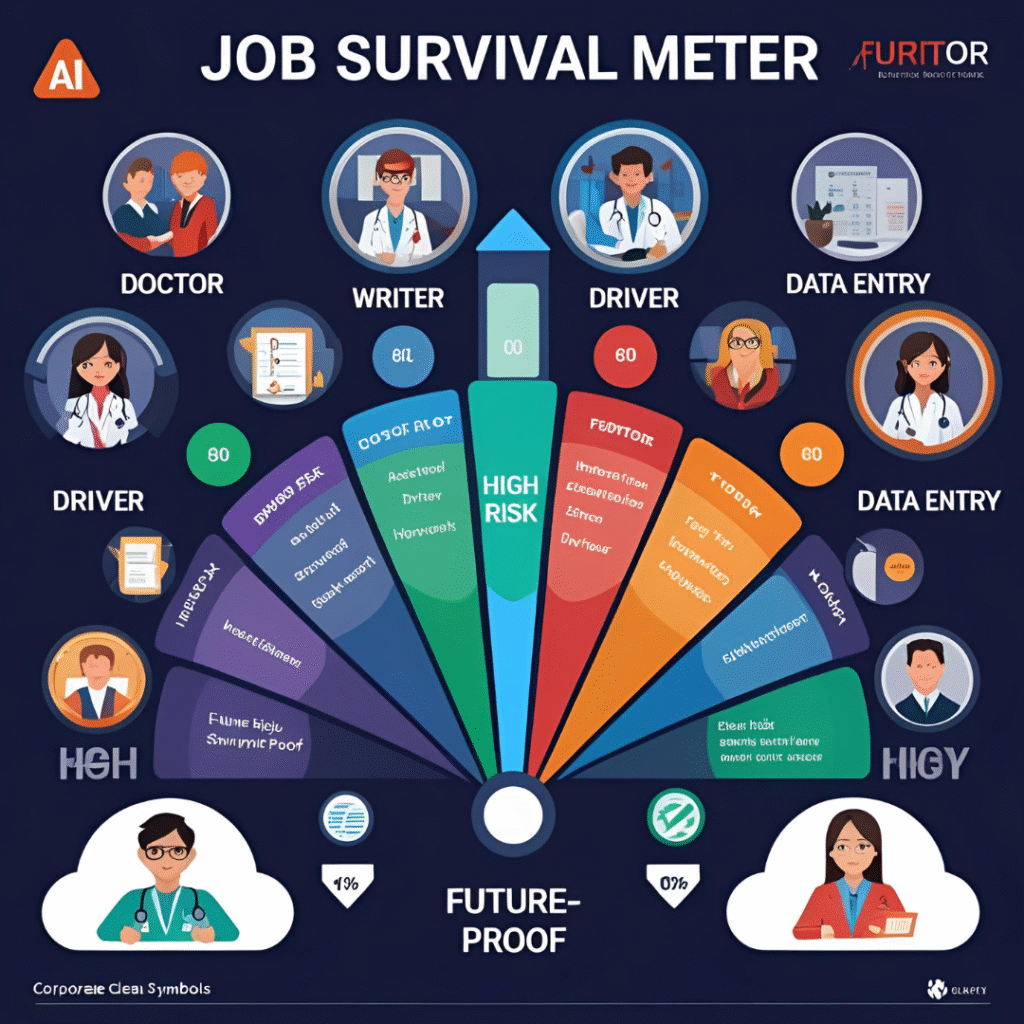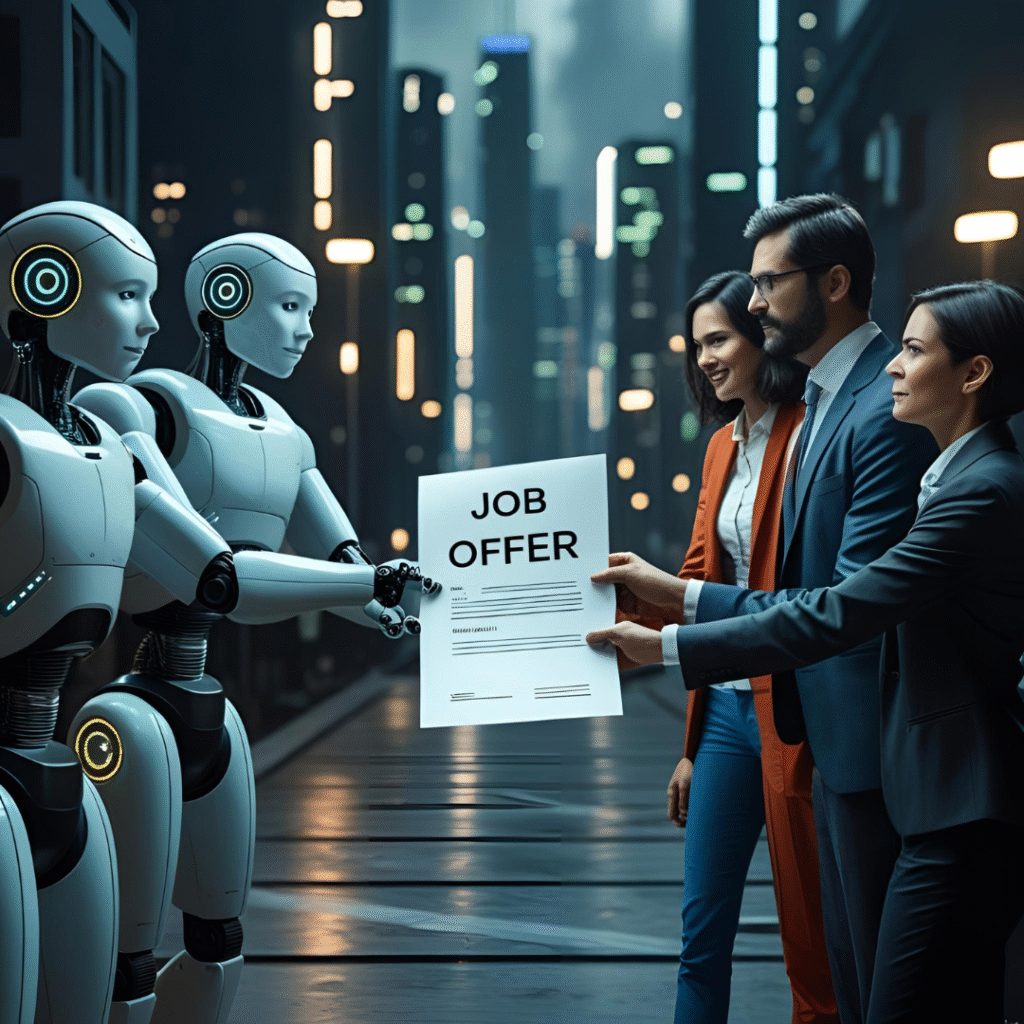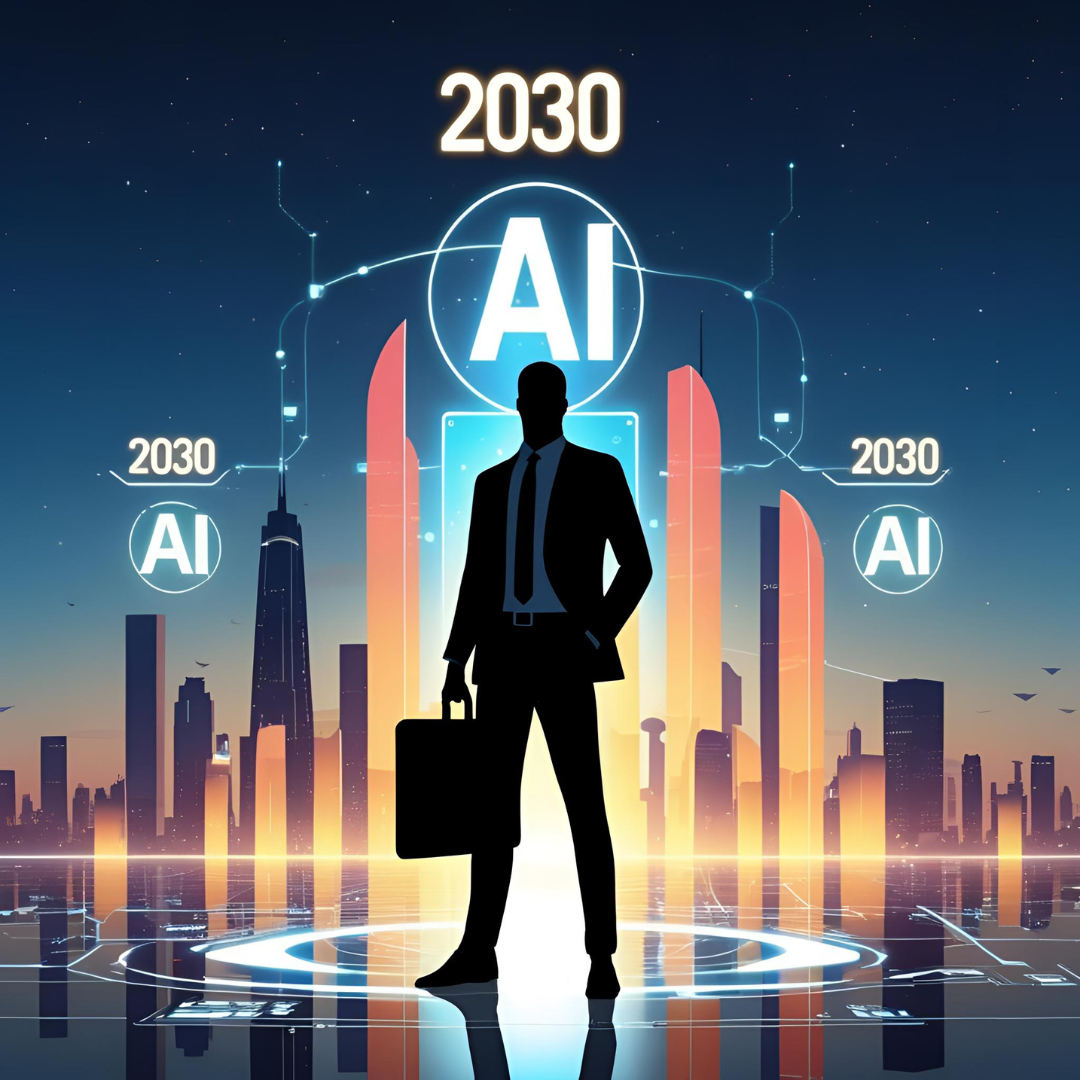Will AI replace your job by 2030? Discover which careers are future-proof, evolving, or vanishing with AI’s rise and how to prepare for the changing job market.
Introduction
The rapid rise of Artificial Intelligence (AI) is transforming every industry—from healthcare to finance, education to entertainment. As automation accelerates, a growing concern looms large: Will AI replace human jobs? Or more importantly: Which jobs will survive in 2030?
In this blog, we’ll dive deep into how AI is disrupting employment, which professions are at risk, which are resilient, and what new roles will emerge. Let’s explore the future of work and how you can stay ahead in this AI-powered age.
How AI is Changing the Job Landscape
Artificial Intelligence is no longer a futuristic concept. From chatbots replacing customer service agents to autonomous vehicles threatening driving jobs, AI is already reshaping the workforce. A report by McKinsey Global Institute predicts that up to 800 million jobs could be automated by 2030—that’s almost one-fifth of the global workforce!
Yet, AI isn’t just eliminating jobs; it’s also creating new ones. The key lies in adaptability, creativity, emotional intelligence, and skills that machines cannot easily replicate.
Jobs Likely to Disappear by 2030
Below are some job categories that are highly susceptible to automation due to repetitive and rule-based tasks:
🛒 1. Retail Cashiers
AI-powered kiosks, self-checkout systems, and e-commerce automation are reducing the need for in-store staff.
🚚 2. Delivery Drivers
With autonomous delivery drones and self-driving trucks in development, logistics is set for a major overhaul.
📞 3. Telemarketers & Basic Customer Support
AI chatbots like ChatGPT, Google’s Bard, and enterprise AI systems now handle queries more efficiently and 24/7.
🧾 4. Data Entry Clerks
Repetitive tasks like form-filling and record maintenance are easily managed by Robotic Process Automation (RPA).
🧹 5. Basic Cleaning Jobs
Robotic vacuum cleaners and AI janitorial bots are already common in offices and malls.
Tip: If you’re in any of these fields, it’s time to upskill and pivot toward tech-integrated roles.
Jobs That Will Survive (and Thrive) in 2030
Not all jobs are replaceable. Roles that require human empathy, strategic thinking, and creativity are safe—and even in higher demand. Here are some:
👨⚕️ 1. Healthcare Professionals
Doctors, nurses, and mental health therapists combine science with human compassion—something AI cannot fully replicate.
💡 2. Creative Professionals
Writers, filmmakers, artists, and UX designers bring original thought and emotional resonance to their work.
👨🏫 3. Educators & Trainers
AI may assist in teaching, but inspiring learners, mentoring, and emotional support are uniquely human.
🔧 4. Skilled Trades
Electricians, plumbers, mechanics, and technicians work in unpredictable environments that require hands-on adaptability.
👨💻 5. AI Specialists & Data Scientists
Ironically, the rise of AI creates jobs that build, train, and manage AI systems—these skills will remain crucial.

Emerging Careers Created by AI (Future-Proof Skills)
As old roles fade, new AI-powered job titles are emerging. Prepare for:
- 🤖 AI Ethicist – Ensures responsible and unbiased AI deployment
- 🧠 Prompt Engineer – Fine-tunes large language models for specific outputs
- 🌐 Metaverse Architect – Designs virtual environments for work and play
- 📊 Data Privacy Manager – Protects user information in an AI-integrated world
- 🎨 AI Content Curator – Oversees generative art, music, and text for brand or storytelling
Upskill with courses from platforms like Coursera, edX, Udemy, and Google Career Certificates
How to Future-Proof Your Career
The best way to stay ahead in the age of AI is to become “AI-augmented,” not AI-replaced. Here’s how:
✅ Learn Tech Tools:
Even basic knowledge of Python, SQL, machine learning, or AI tools like ChatGPT, Midjourney, or Canva AI can give you an edge.
✅ Emphasize Soft Skills:
Critical thinking, communication, leadership, empathy—these are your strongest assets.
✅ Embrace Lifelong Learning:
Stay updated with future skills through online micro-certifications and workshops.
✅ Follow Industry Trends:
Keep tabs on job trend reports from LinkedIn, World Economic Forum, and NASSCOM.

Conclusion: Human + AI = Future Workforce
The question isn’t “Will AI replace humans?”—it’s “How can humans work with AI?”
By 2030, the winners will be those who blend human intelligence with artificial intelligence. Jobs that rely solely on routine tasks are fading. But roles rooted in creativity, emotion, ethics, and human interaction are here to stay—and grow.
Start learning, start adapting—and future-proof your career.
✅ FAQs
Q1: Will AI take all our jobs by 2030?
No. AI will replace some jobs but also create many new ones. Adaptability is key.
Q2: Which industries will grow despite AI?
Healthcare, education, skilled trades, AI development, and creative industries will grow.
Q3: How can I protect my job from automation?
Upskill in AI, focus on soft skills, and choose career paths that require human empathy and innovation.
🔗 Useful Resources:
- World Economic Forum – Future of Jobs Report
- McKinsey Global Institute: Jobs Lost, Jobs Gained
- Google Career Certificates
- LinkedIn Emerging Jobs Report
- OpenAI Blog – Future of Work
📢 Stay Updated – Explore More Career & Tech Insights
Want to stay ahead in your career and never miss out on the latest in AI, jobs, and future skills? Check out our most-read articles:
- 🔍 Best Courses & Skills to Learn in 2025 for High Salary
Discover top in-demand skills that can future-proof your career and increase your earning potential. - 🧠 Top 5 AI-Powered Chrome Extensions You Need in 2025
Boost productivity and creativity with these must-have AI browser tools. - 🏛️ Government Jobs Without Exams – 2025
Explore direct recruitment opportunities that don’t require a written test. - 🚀 Govt’s AI & Tech Initiatives – ONDC, IndiaAI, Bhashini
Understand how India is becoming a digital superpower through innovation and tech integration. - 📈 Top Trending Govt Jobs in 2025 – High Demand Roles
A complete list of hot government job openings that are grabbing attention this year.
👉 Bookmark our blog or subscribe to updates so you never miss a future-ready opportunity!





One thought on “Jobs That Will Survive AI in 2030”